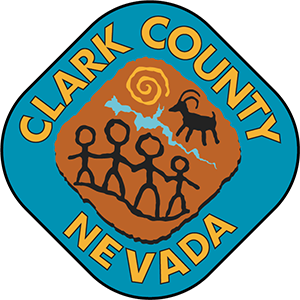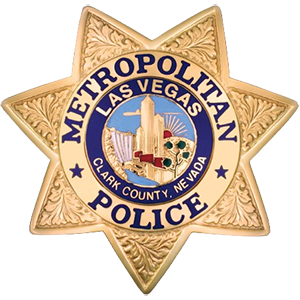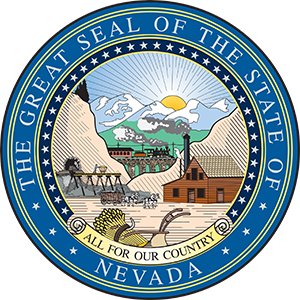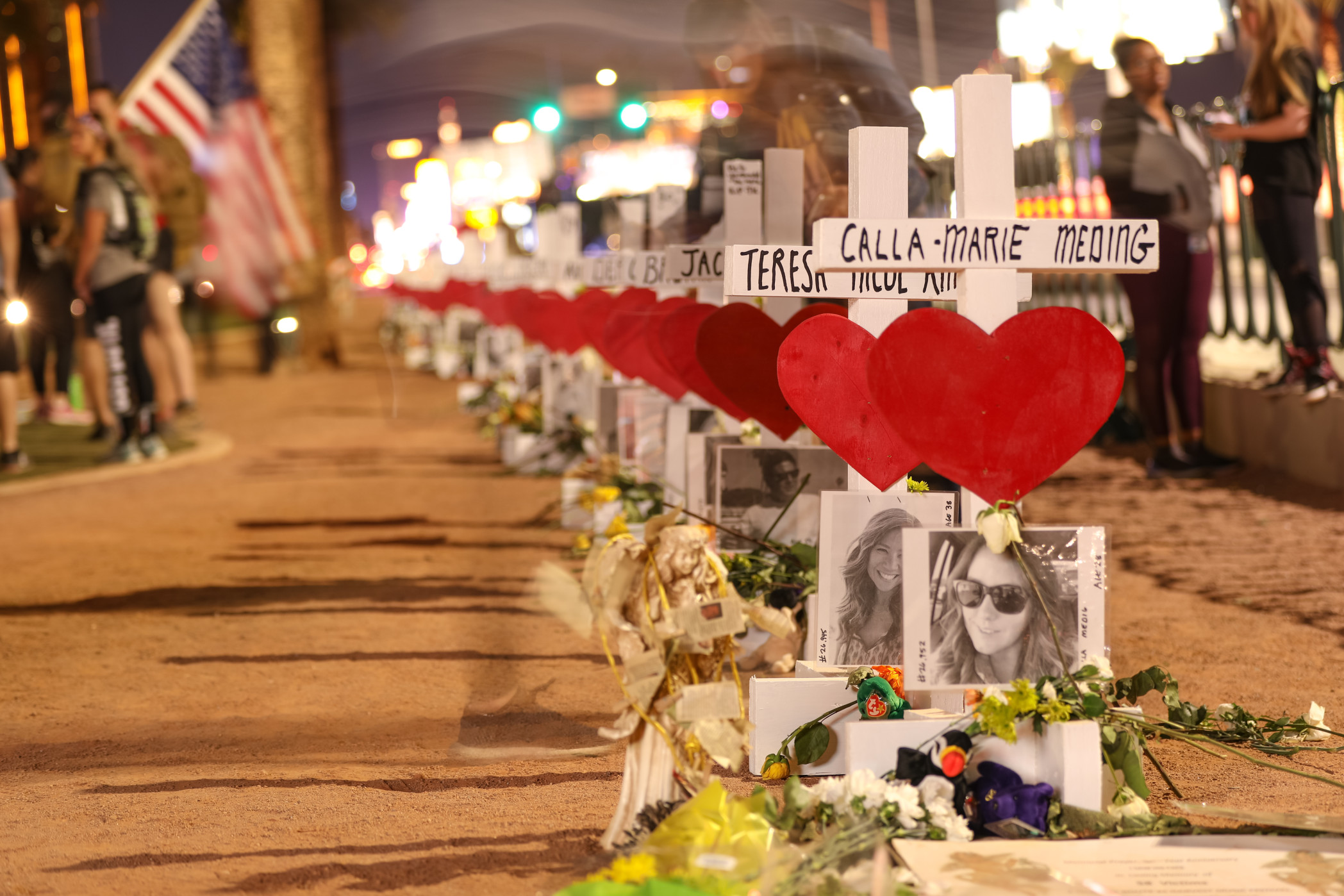
Reflections of a Community Healing
Tennille Pereira, Director of the Resiliency & Justice Center
October 2, 2017. I woke to a cell phone brimming with text messages from across the country that were all basically the same: “Are you safe?” Confusion turned to horror as I logged into Facebook and then turned on the local news. The nation’s largest mass shooting had taken place just miles from my home and the images were awful and gut-wrenching. I stood frozen as it felt like the world I knew had just melted around me, and I knew in that moment that something had changed for me personally as well.
I knew I had to do something. I knew there was going to be a part for me to help facilitate the healing within my community.
As Las Vegas began to wake up, the news soon showed a number of different images that would become as iconic for me as the empty cowboy boots left to litter the venue and sidewalks. There were lines of people wrapping around city blocks waiting to donate their blood to help, while strangers handed out handmade peanut butter and jelly sandwiches and water bottles to them. There were pallets of water, and delivery after delivery of food showing up to feed first responders and healthcare workers laboring tirelessly to help the thousands of victims and survivors. In the days that followed, there would be 58 handmade crosses rolling into town displayed under the iconic “Welcome to Las Vegas” sign where thousands would visit and hold vigil to show solidarity and support. Two landscape architects would sit quietly in a café scrolling out a plan for a place of contemplation and solace, where thousands of community members would appear with an abundance of supplies and manpower to create a garden for healing. Las Vegas’s rookie NHL team, the Vegas Golden Knights, would dedicate their next home game to the first responders of 1 October and declare that “together, we are Vegas Strong.”
Over the next few weeks, then months, then years, the term “Vegas Strong” would continue to ring throughout a community that was bound and determined to not let one horrific crime define it. October 1, 2017, wasn’t just the day that the nation’s largest mass shooting took place on the Vegas strip, but the day Las Vegas went from a being a tourist destination to a solidified, strong community—a community left reeling and wounded, but determined to share its light. A community that now reached far beyond geographical borders.
Annually around the year mark, I find myself reflecting on the journey the impacted community has been on, as well as my own personal journey, because they have been intertwined from the beginning. This October marks four years. As I reflect, I am still awestruck at the community response and compassion that continue to this day. I am awestruck at the systemic-wide changes within victim/survivor services and the myriad healing resources that have been developed. I am awestruck at the individual healing stories among the survivors and bereaved families. I am awestruck at what the Vegas Strong Resiliency Center has been able to become.
Healing is not linear and it doesn’t happen in a vacuum. We have setbacks along the way and many of them come from circumstances outside of one’s control. Even taking the setbacks and various trials along the way, I am comforted to report that what I truly see looking back at the four-year mark is healing.
My story with the Route 91 response began staffing a legal assistance table as an attorney with Legal Aid Center of Southern Nevada at the Family Assistance Center. I soon found myself with the Executive Director of Legal Aid Center, Barbara Buckley, in a meeting with federal consultants to discuss setting up what they called a “resiliency center.” We walked out of that meeting in complete silence, our minds racing at the possibilities that such a place could offer the impacted community now, but also in perpetuity for any subsequent mass casualty incident or other victims of violence. This was our opportunity to make sure something good came out of this horrific crime.
We began by staffing a legal team at the newly formed Vegas Strong Resiliency Center (VSRC) that took over providing assistance from the Family Assistance Center. Soon, Clark County asked Legal Aid Center of Southern Nevada to take over operations and management of the VSRC as a more nimble nonprofit. We eventually moved into a newly renovated space to respond to survivors’ needs with ample space for our community partners and collaborators to work alongside us to develop a community resource for healing. We began looking into victim services for the state of Nevada and whether or not there where changes that could be made to facilitate healing for all victims. Two legislative sessions have come and gone and, during each one, we have been able to consult and advise on successful measures that have improved victim/survivor services throughout Nevada. During the COVID-19 pandemic, we were a beacon in the storm for thousands now dealing with an extra layer of trauma. Just this past year, we were awarded an extra grant to hire a victim advocate to begin providing services to any victim of a violent crime in Nevada based on the service model of the VSRC.
It goes without saying that we would have never reached these important benchmarks without the like-minded efforts by our national partners, local community partners, and the dedicated individuals throughout the survivor and bereaved family community. We have been honored to take part in a bi-monthly forum designed for resiliency center directors by the National Mass Violence Victimization Research Center. These efforts have led to additional healing in all communities that have been devastated by mass violence, as we have shared our experiences and learned from other communities all across the nation to foster our collective healing.
To this day, all different types of professionals and businesses offer valuable resources or the development of resources to support the efforts of the VSRC. Behavioral health providers have increased their trauma resources. Survivors have been trained to offer peer support to other survivors. Bereaved family members support one another through special social media connections they have established. Everywhere I turn, I see others rising to create, innovate, exceed, and strive in order to foster healing in themselves and in others.
In a way, four years after looks very much like it did in those early days of a community coming together. It is the accumulation of all the efforts, big and small, that has truly led us down a path of healing four years in the making. I can honestly say that I am a better person, the community around me is more unified, victim/survivor services have improved, and healing has truly taken place.
There is no finish line in this challenging and painful journey, yet I am confident that we will continue to heal, as we continue to foster healing in others.
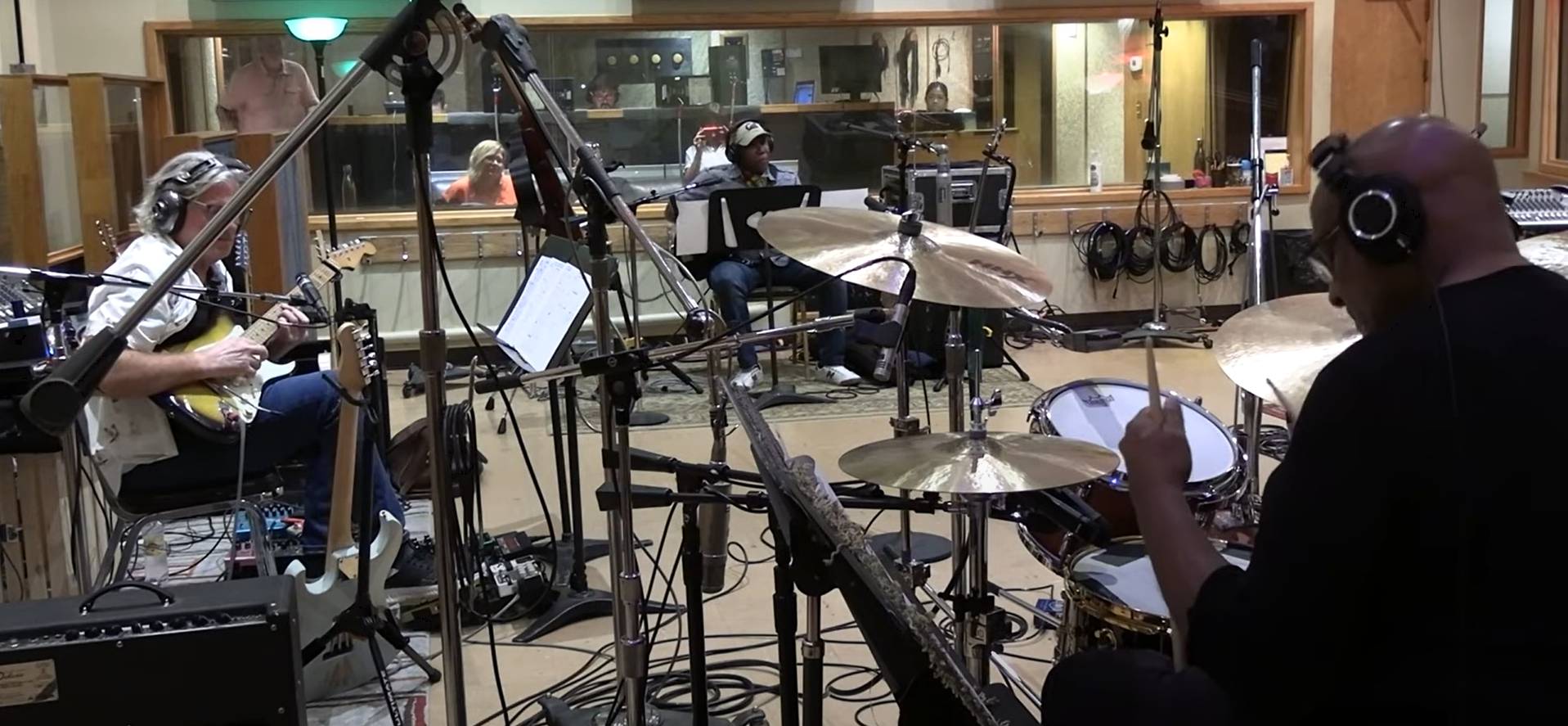
“Four Years After” Musical Tribute
Mark Johnson, Alan Parsons & Michael Grimm
Warning: This video contains graphic images from the event.
October 1, 2021, will mark the four-year anniversary of the horrific mass shooting that occurred in Las Vegas at a concert. The shooting lasted ten minutes. Shortly thereafter, 58 people were dead, hundreds more were injured. This event remains the largest mass shooting in US history.
A song, “Four Years After,” was recently written, recorded, and released in honor of all of those affected by the atrocity. The recording features the most extraordinary talent from Los Angeles, Las Vegas, and London. The song was produced by the legendary Alan Parsons and sung by America’s Got Talent winner Michael Grimm.
“Four Years After” can be found at most music digital outlets including iTunes and Spotify. Click here for additional information and lyrics.
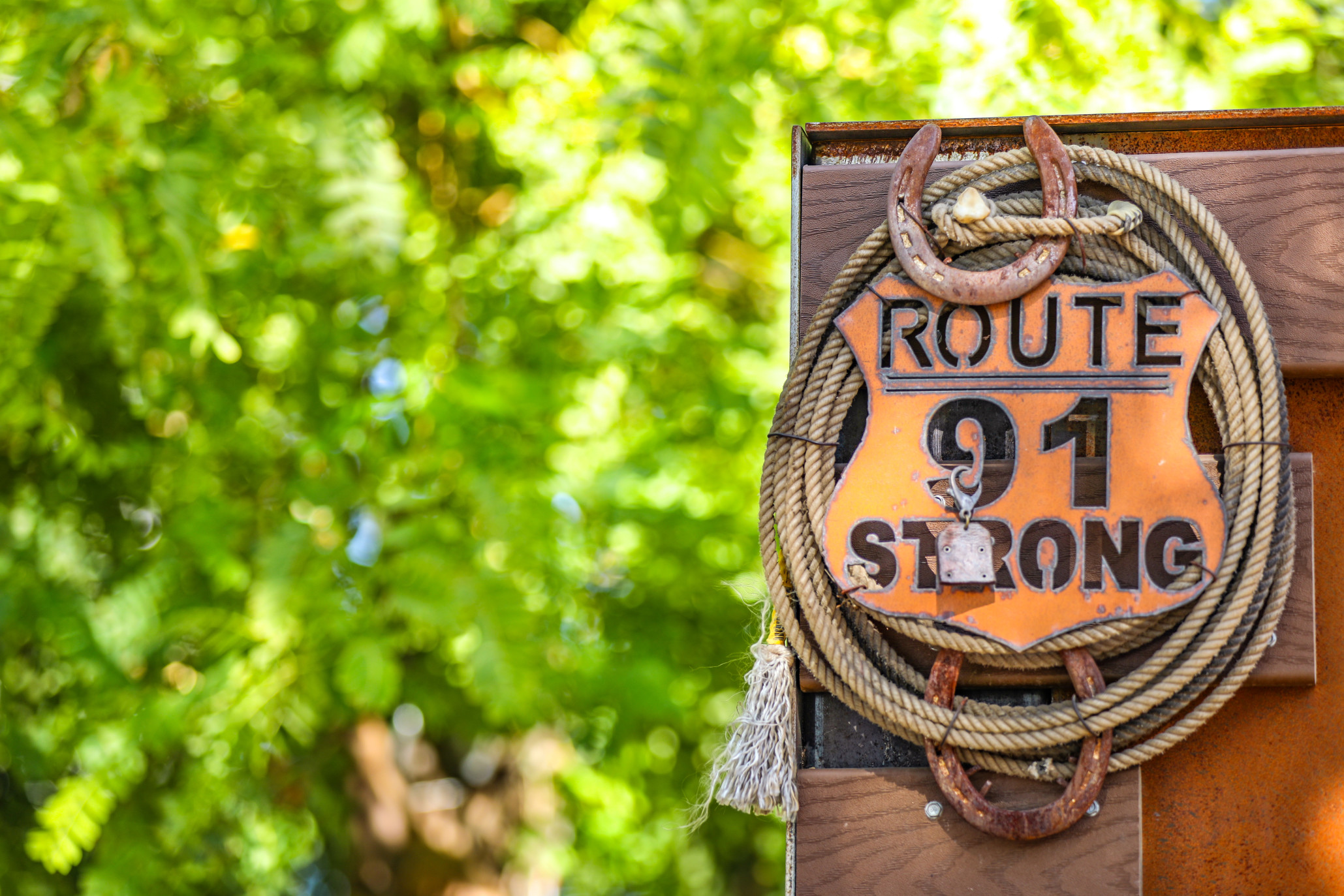
Hope, Heal & Grow
Terri Keener, Behavioral Health Coordinator
Just as there were thousands of concert attendees, concert staff, responders, medical providers, hospitality staff, good Samaritans, family members, friends, neighbors, community members, locals, visitors, and those who observed the aftermath firsthand or from a distance, there are as many unique stories of how that night left its mark and its memory.
In our community and across the miles, we have witnessed not only the pain but also the compassion of those who offer hope and the healing journeys of those who now call themselves members of the Route 91 family.
The LV Community Healing Garden is a place where many people have found a space for part of that journey. A survivor expressed that she has been going to the garden since its beginning. Initially, she would find herself overwhelmed with grief, but she now finds it to be a place to reflect and feel love, often connecting with others there who are on the same challenging journey. Each tree at the garden has a picture of the “angel” it represents and honors. Many heartfelt items are left at the garden in remembrance.
There is a bench placed at the garden that says it all: Forever Family Route 91. The Healing Garden has become just that, a beautiful garden, and a place for each one who visits to heal in their own way.
One survivor offers these words:
“When you go through trauma and hard times, it often becomes difficult to see past the pain. Healing from trauma is tough. Healing from trauma isn’t easy . . . there is no shortcut for healing. We will never be able to forget that horrific night four years ago, but we can learn to live with it. Don’t let the memories slow you down. There is hope—for all of us. Fight because the world needs you. It needs someone who’s been strengthened by adversity and struggle. It needs you, who have been through so much but still manage to remain kind and compassionate. When everything seems dark, choose to be the light.”
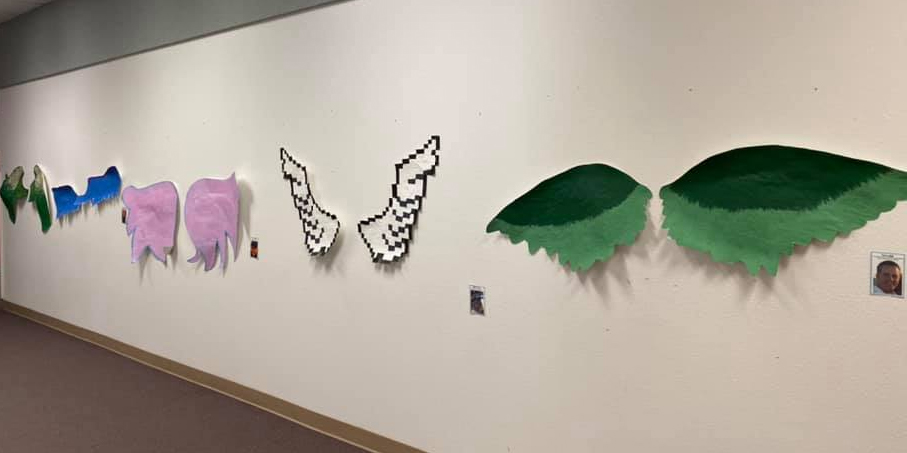
Remembrance Events
There are a number of events and initiatives to honor and heal during the fourth remembrance of the Route 91 tragedy of October 1, 2017, available both in-person and online. Click on each event for details and how to get involved.
Be sure to check out our monthly calendar for outreach events, workshops, trainings, integrative services, and support groups offered year-round by the Vegas Strong Resiliency Center and our various community partners.
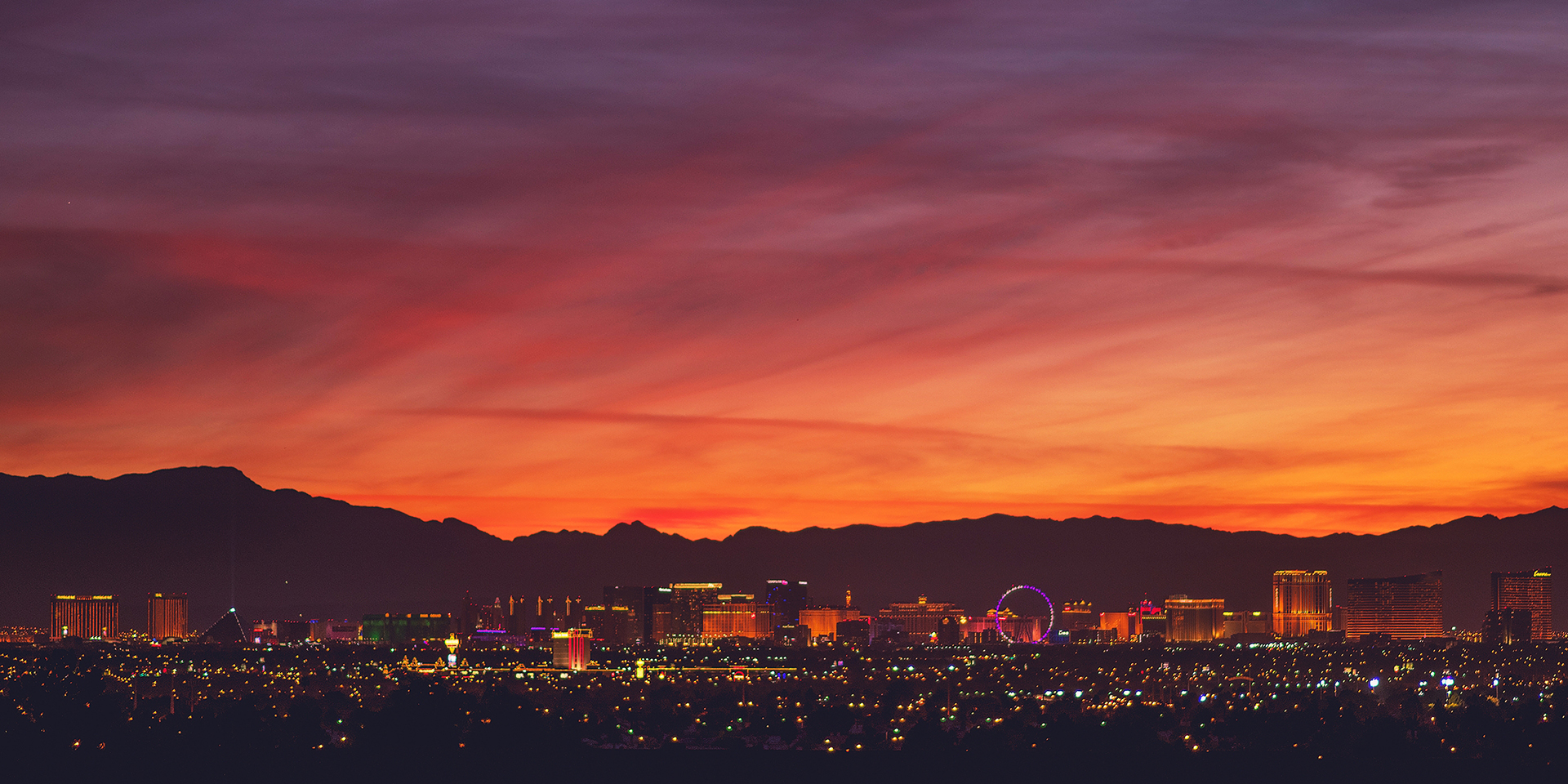
Looking Back & Moving Forward
Dr. Dean Kilpatick, Director of the National Mass Violence Victimization Resources Center
Like everyone in America, I remember the horror and grief of October 1, 2017, when joyful concertgoers were terrorized by the worst mass shooting in our nation’s history, in terms of the number of people who were murdered and physically injured. Based on what we knew from previous incidents of mass violence and from initial media accounts, we knew that the impact would extend far beyond those who were direct victims and survivors. We knew that it is terrifying to be in a large crowd with everyone running frantically trying to escape, with some people being trampled in the process. We knew that seeing people around you who were killed or injured is traumatic, as is the “survivors’ guilt” that comes from having survived the shooting when others did not. We also suspected that the concertgoers would be from many parts of the nation, not just Las Vegas, and that this would pose many challenges for victim assistance efforts.
I recall my personal sense of dismay and anger at yet another senseless act of mass violence that I knew would irrevocably alter countless lives of victims and survivors. And I recollect that my staff and I felt a small sense of solace because we personally knew several wonderful victim advocates in Nevada, and many across our nation, who we knew would be called upon to respond to this horrendous mass casualty crime, and who would do so with caring and compassion.
I also recall October 1, 2017, with a strong and special sense of purpose. On September 28, 2017, we were notified by the U.S. Department of Justice, Office for Victims of Crime (OVC), that they had selected our team at the Medical University of South Carolina (MUSC) to establish the National Mass Violence Victimization Resource Center (NMVVRC) with a start date of October 1, 2017. The mission of the NMVVRC was, and is, to improve community preparedness and the nation’s capacity to serve victims and communities recovering from mass violence through research, planning, training, technology, and collaboration. We were unable to start work on the NMVVRC until paperwork between OVC and MUSC was completed, but the Las Vegas mass shooting highlighted the importance of our mission, as well as the need for us to get underway as quickly as possible.
Our center is committed to helping communities and states enhance their capacity for readiness, response, and resilience relevant to mass violence incidents. We are guided in our efforts by a stakeholders forum comprised of mass violence survivors and victim service and mental health professionals, including Elynne Greene, the Victim Services and Human Trafficking Manager for the Las Vegas Metropolitan Police Department. Greene was not only one of the countless dedicated first responders who helped out in the aftermath of October 1, but she also brings decades of experience as a compassionate and committed victim advocate.
It is sad, yet heartening, to say that with every new mass casualty crime in America, we are able to document “lessons learned” that strengthen our collective capacity for mass violence planning and immediate-, short-, and long-term response.
The Vegas Strong Resiliency Center (VSRC) has been central to these important efforts.
VSRC leaders are an integral part of our center’s Resiliency Center Directors’ Forum, where participants from a dozen resiliency centers created in the aftermath of mass violence incidents meet monthly to share their personal and professional insights about the long-term impact of mass violence on victims, survivors, and communities. Together, this forum has contributed to effective strategies that best identify and meet their needs.
The NMVVRC has also created a critical partnership with the Vegas Strong Resiliency Center to co-sponsor an ongoing needs assessment survey with direct victims, survivors, and surviving family members of the Las Vegas mass shooting. We know that those who have been affected by mass violence are the only ones who have a real understanding of what experiencing this type of event is like, so the purpose of this survey is to get information about their opinions and experiences. The survey is anonymous and asks about how they were affected by the mass shooting, their experiences with services they were offered, and how well agencies are doing in providing services that victims want and need. Victims also can make recommendations about how to improve services. Survey results will provide valuable information to our center, the Vegas Strong Resiliency Center, and to the USDOJ Office for Victims of Crime about what mass violence victims’ needs are and how to improve services.
When the NMVVRC opened four years ago, our vision was simple: “Victims and survivors of mass violence must have access to first-rate, evidence-based information, and services throughout the entire recovery process provided by victim assistance and other professionals who are compassionate, well-trained, and respectful of victims’ needs and wishes.” Based on what they have done to recognize, validate, and address the needs of victims, survivors, and community members during the past four years since the shooting, we believe that the Vegas Strong Resiliency Center and the entire community of Las Vegas share that vision. We know that there is a long road ahead, but we must all keep our vision in sharp focus and our commitment strong.
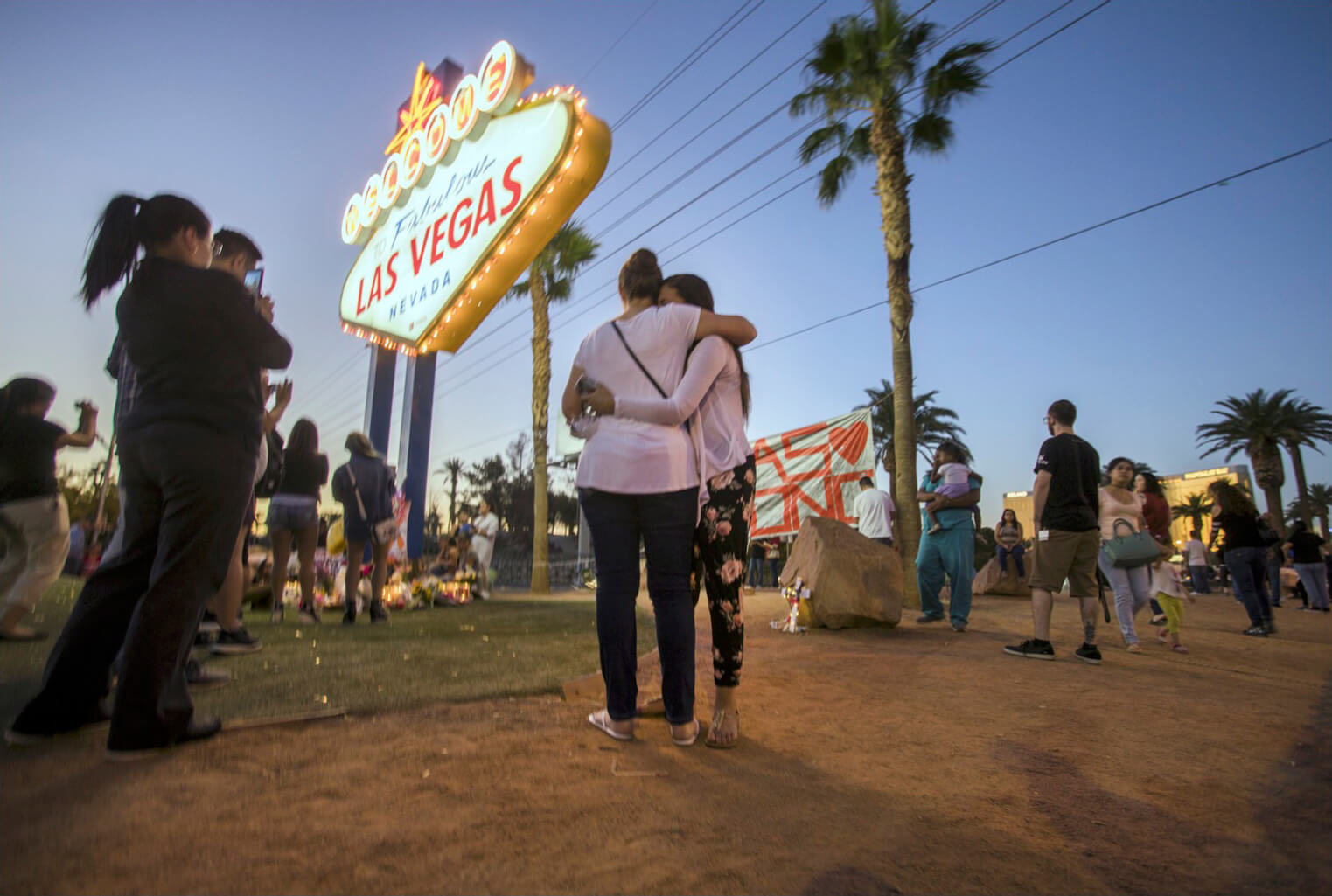
Coping Strategies
Merlelynn Harris, M.S., MFT, Clinical Director of Bridge Counseling
It is completely natural to feel increased anxiety and replay the memories of a traumatic experience in your head as its anniversary approaches. There are a number of coping strategies that may help you during this time, however.
Reach out to others, do not isolate yourself, talk with people who care about you, and if you have not already done so, find a trauma-informed counselor who can help you replace persistent negative thoughts with positive ones. Bridge Counseling’s Merlelynn Harris, M.S., MFT, shares these and other strategies for survivors of Route 91 in this video.
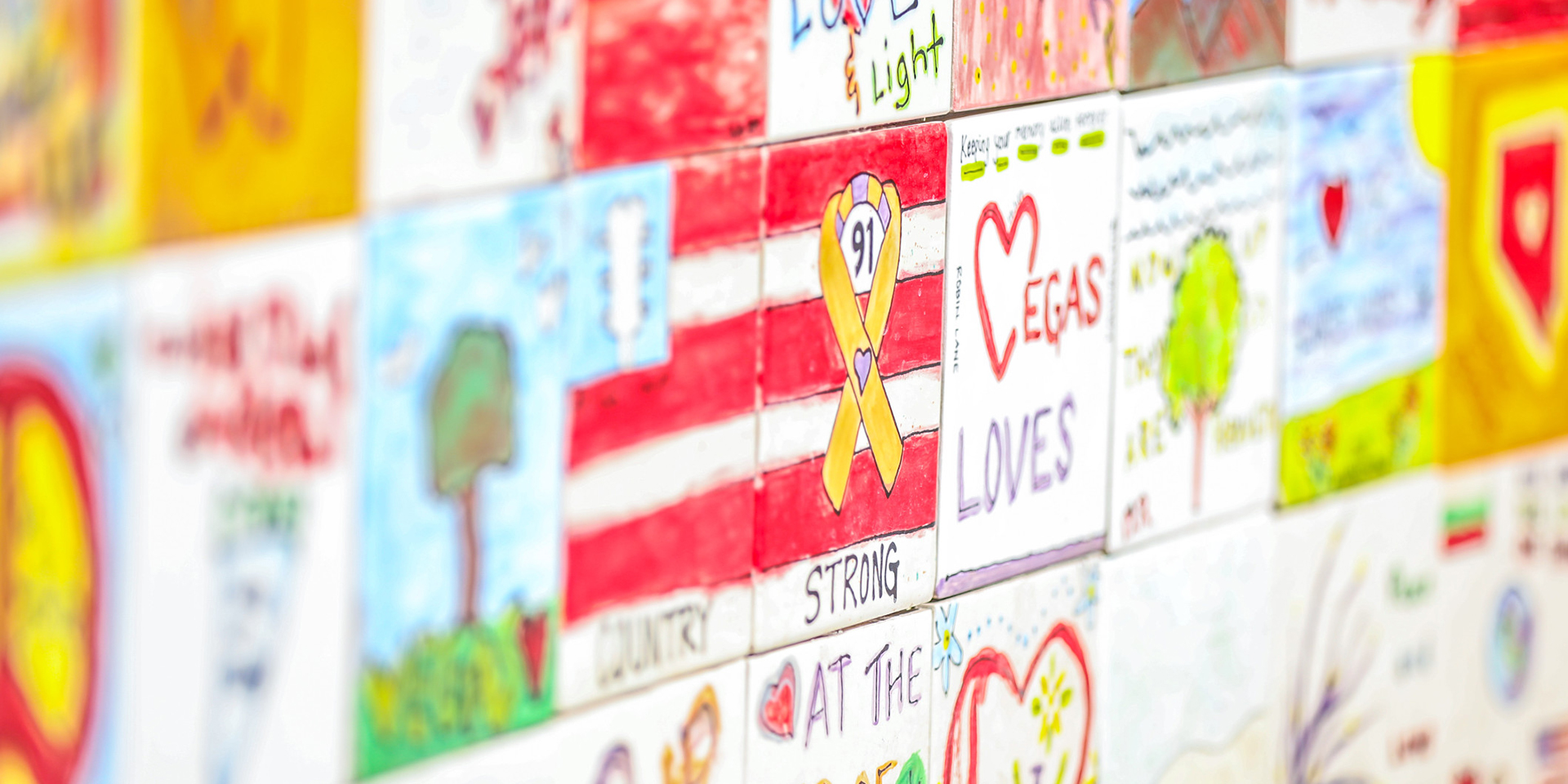
Healing & Honoring on October 1
Alice Goldstein, Route 91 Support Group Facilitator
For those impacted by the Route 91 Harvest Festival, October 1, 2017, is a day that forever holds special meaning. Routers tell me that they were having the time of their lives during the weekend of the festival, right up until it turned into running for their lives.
It’s coming up on four years since the weekend of fun and friendship became a night of lives lost, physical injuries, and people forever changed. However, the violence that happened that night does not have to deprive anyone of the right to pursue and enjoy a fulfilling life.
The “Anniversary Effect” and How to Continue Healing
As the date of October 1 approaches, those impacted by the violence at the Harvest Festival may experience a variety of physical and emotional symptoms as well as restlessness and fear. These painful emotions can begin weeks before the annual date.
If you or someone you know was impacted by the mass violence at Route 91, keep in mind that for many, the approaching Remembrance will evoke painful memories. The annual date of the traumatic event can reactivate thoughts and feelings from the actual incident. Many may feel a sense of anxiety, increased stress, grief, sadness, nightmares, frustration, and anger. Others experience insomnia or sleep excessively. Some may know they just feel out of sorts but don’t necessarily make the connection to the date of the trauma.
If you are feeling these things, please know you aren’t alone. Some therapists refer to the automatic reactivation of feelings of a trauma anniversary as the “Anniversary Effect.”
Although the Anniversary Effect is a completely normal automatic response, many aren’t aware that these emotions are activated by the approaching remembrance date and may become discouraged, as if they’re going backward with their healing. However, experiencing the emotions that come up at this time can actually be a part of the normal course of healing and an indication of remaining remnants of the trauma that a professional can help you process.
A Day of Remembrance
Everyone experiences the anniversary of the trauma in their own way. That’s normal. What’s important is to find a way to process the trauma that helps you heal. If you find that you have a difficult time doing things you enjoy, this may be an indication of feeling guilt that you survived when someone else did not. This is a type of grief that a counselor can help you process.
Whether you’re at the point of your journey where you want to commemorate October 1, need to re-engage in some healthy coping strategies, or both, there are activities that you can do in the weeks prior to and on October 1 to further your healing.
Be kind to yourself. Schedule time for yourself where you can reflect without being rushed. Journaling or a creative form of expression may be beneficial. Your feelings are valid and it’s good for you to process them in a safe way.
Take care of your mental health. Make an extra therapy appointment or two. If it’s been some time since your last counseling appointment, consider making an appointment and following through with it. It’s never too late to join a support group, connect with a trained peer support mentor, or begin therapy with a qualified provider. If you find yourself relying on addictive behavior, you’re also not alone and can find help at 12 Step Recovery meetings online or in person.
Participate in enjoyable activities. If it’s solitude that you find enjoyable, plan time for being alone. Some people find being out in nature very healing. Spending time walking, praying, meditating, and just being outside can sometimes give your brain a safe place to process emotions. If you enjoy the company of others, make a plan for that. Spending time with family and friends can be healing even if you don’t speak about the trauma during that time. Do you enjoy singing? Dancing? Laughing? Plan activities to do those things.
Pay it forward. Some people practice deliberate random acts of kindness as a way to process their grief and honor those who passed that night. You can do acts of kindness anonymously, or in the name of someone who passed. Whether it’s paying for a stranger’s meal or donating to a meaningful non-profit, the act of giving to someone else helps us to remember that there is kindness and goodness in the world. If you’ve been growing in your healing and want to help others with theirs, becoming a HEART Peer Mentor may be something you want to consider.
Get creative. Some survivors find it therapeutic to paint rocks with words that are meaningful to them and then leave them at the Las Vegas Healing Garden or leave them at other locations as a symbol of encouragement to others. Some find it helpful to write words that represent the feelings they are struggling with and then dispose of them in a meaningful way.
Tap into your faith. Pray, attend a service, light a candle, meditate. Do those things that help you nourish your soul and spirit.
Remember others. Check-in on others you know who were impacted by Route 91. Offer to meet them at an online support group or, if possible, in person at one of the many remembrance events. Knowing you’re not alone in your healing journey is healing in and of itself.
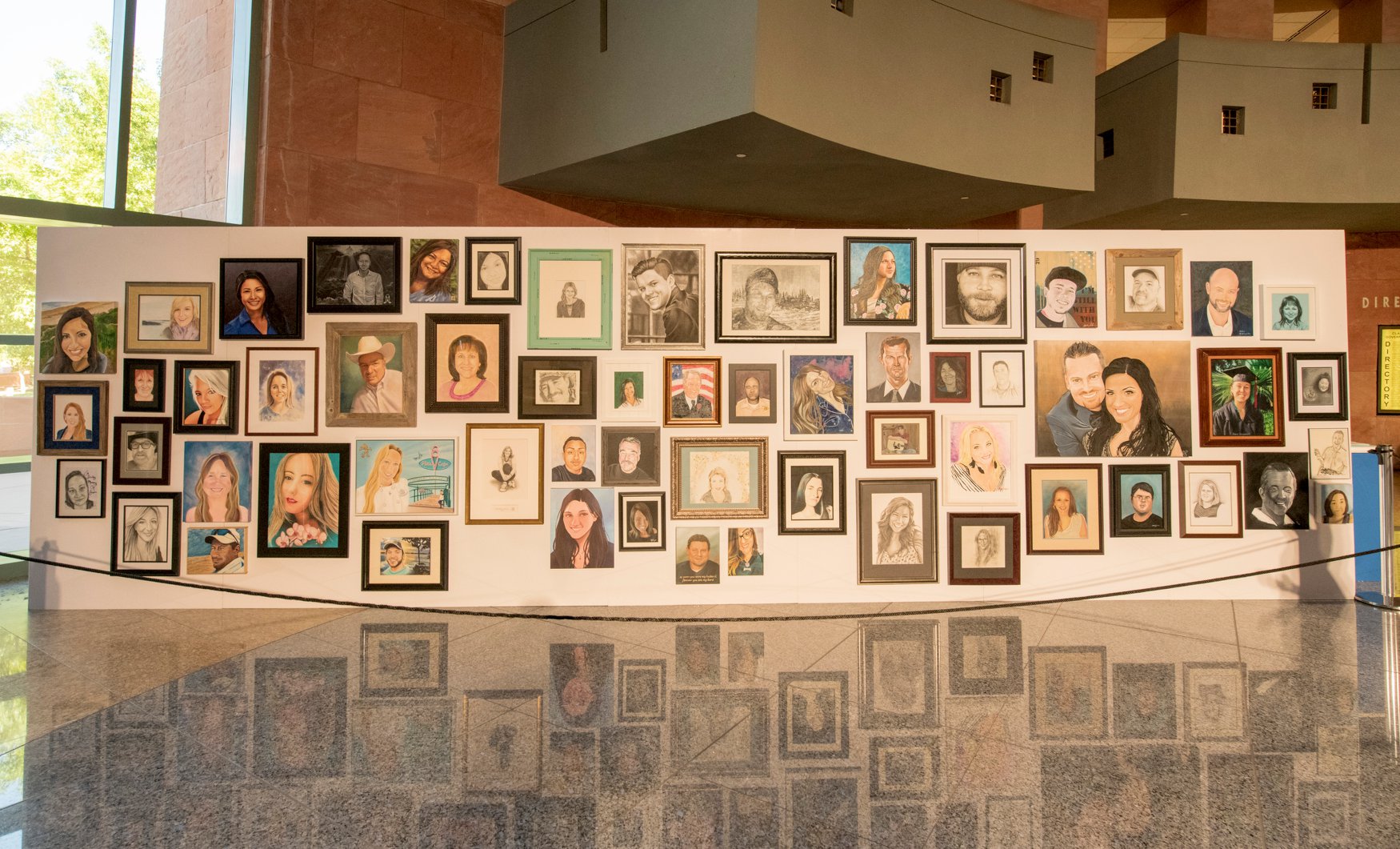
Always Remember
Hannah Ahlers
Heather Alvarado
Dorene Anderson
Samanta Arjune
Carrie Barnette
Jack Beaton
Steve Berger
Candice Bowers
Denise Burditus
Sandy Casey
Andrea Castilla
Denise Cohen
Austin Davis
Tom Day Jr.
Christiana Duarte
Stacee Etcheber
Brian Fraser
Keri Galvan
Dana Gardner
Kimberly Gervais
Angela Gomez
Rocio Rocha Guillen
Charleston Hartfield
Chris Hazencomb
Jennifer Irvine
Nicol Kimura
Jessica Klymchuk
Carly Kreibaum
Rhonda LeRocque
Victor Link
Jordan McIldoon
Kelsey Meadows
Calla Medig
Sonny Melton
Patricia Mestas
Austin Meyer
Adrian Murfitt
Rachael Parker
Jennifer Parks
Carrie Parsons
Lisa Patterson
John Phippen
Melissa Ramirez
Jordyn Rivera
Quinton Robbins
Cameron Robinson
Tara Roe
Lisa Romero-Muniz
Chris Roybal
Brett Schwanbeck
Bailey Schweitzer
Laura Shipp
Erick Silva
Susan Smith
Brennan Stewart
Neysa Tonks
Derrick “Bo” Taylor
Michelle Vo
Kurt Von Tillow
Bill Wolfe Jr.
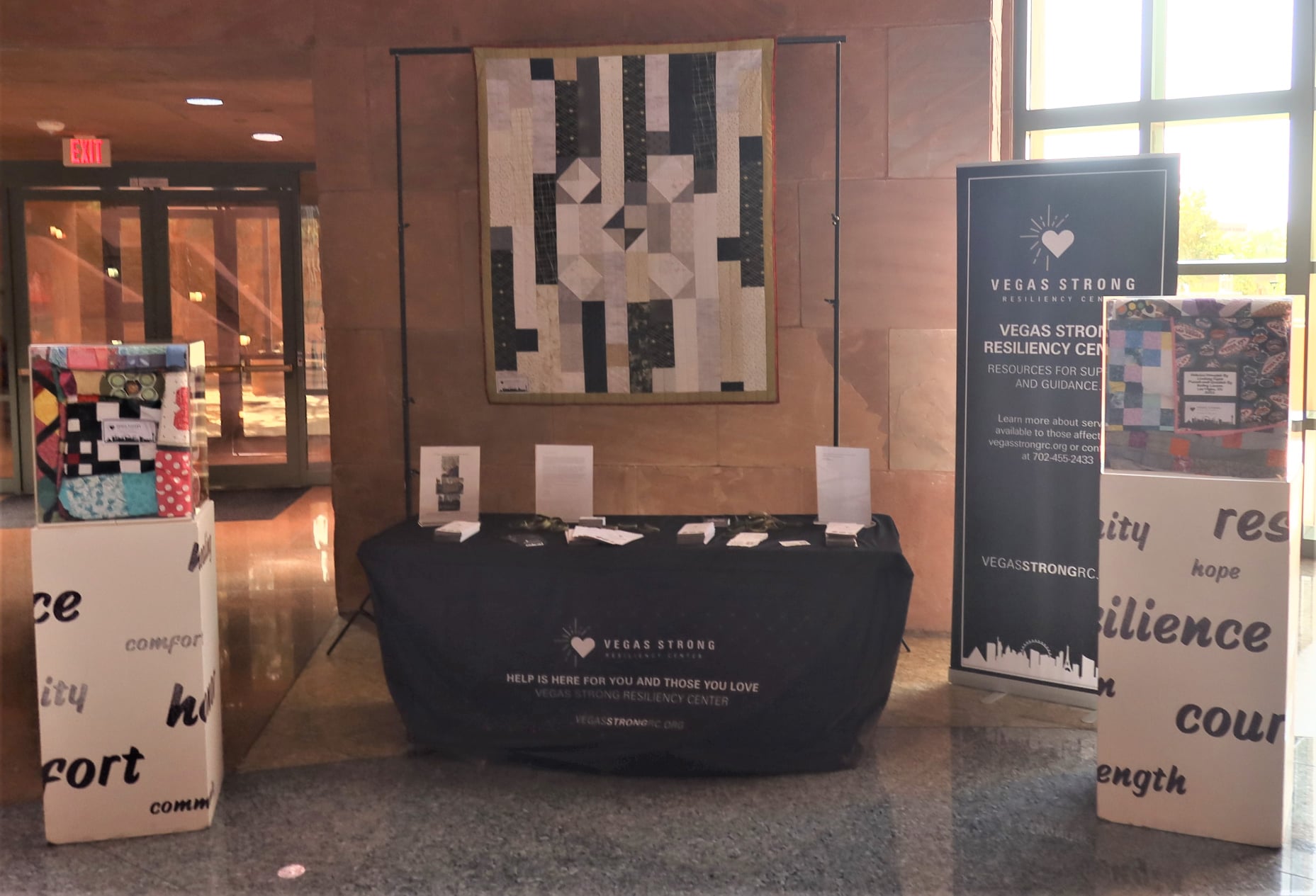
More Than a Hashtag
For anyone touched by the events of 1 October, please remember that help is here for you and those you love—wherever you are and whenever you are ready. The Vegas Strong Resiliency Center remains ready to support you by offering assistance with trauma-informed therapy, integrative services, peer support, legal help, and more resources. Feel free to reach out to us Monday through Friday, 8:30 a.m. to 5:00 p.m. PT (11:30 a.m. to 8:00 p.m. ET), by phone at 702-455-2433 and email at vegasstrongresiliencycenter@clarkcountynv.gov.
After-hours and on weekends or holidays, you can call the Disaster Distress Helpline at 1-800-985-5990 or text “TalkWithUs” to 66746. California residents are also welcome to connect with Give an Hour’s So Cal Route 91 Heals project. Visit giveanhour.org/route91 for more information.
We are continuously appreciative and in awe of the assistance from the global community and the confidence placed in us from Route 91 family that allows us to heal and honor with one another. Working together, we show the world what it means to be #VegasStrong.


